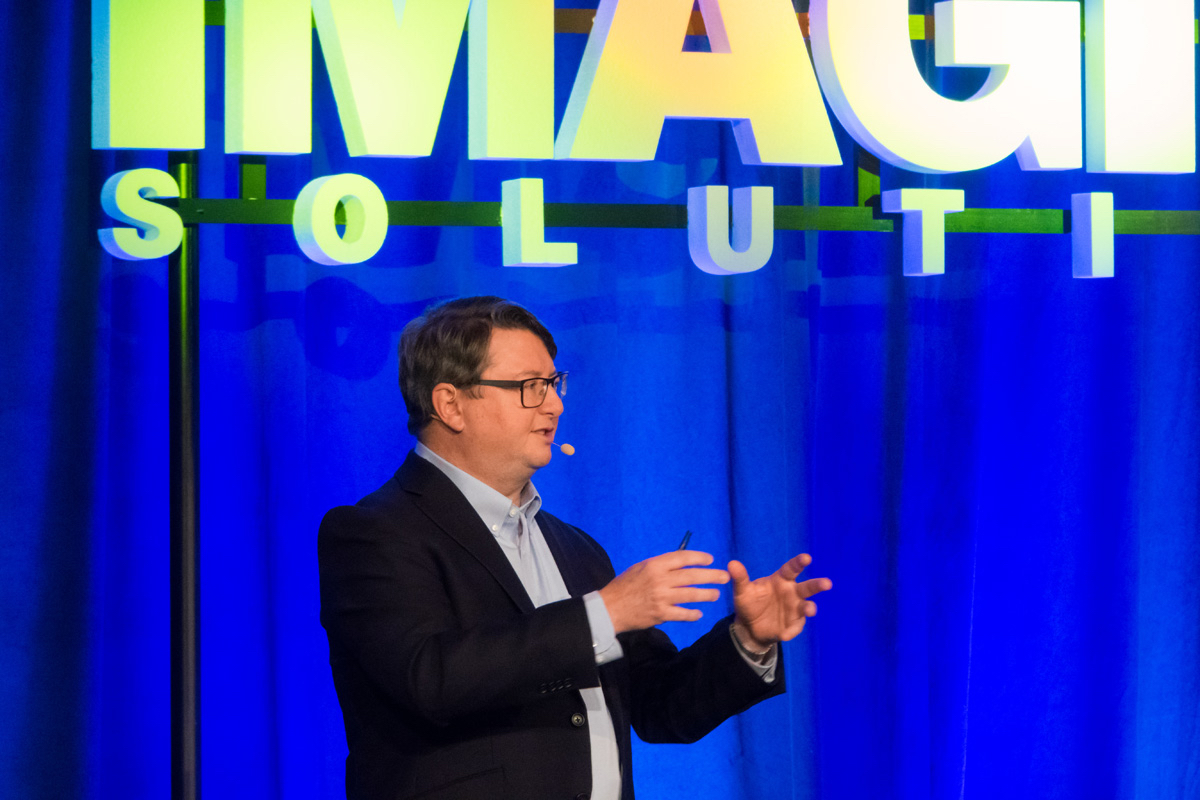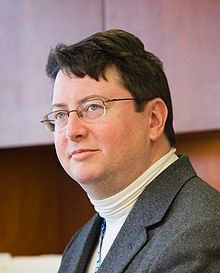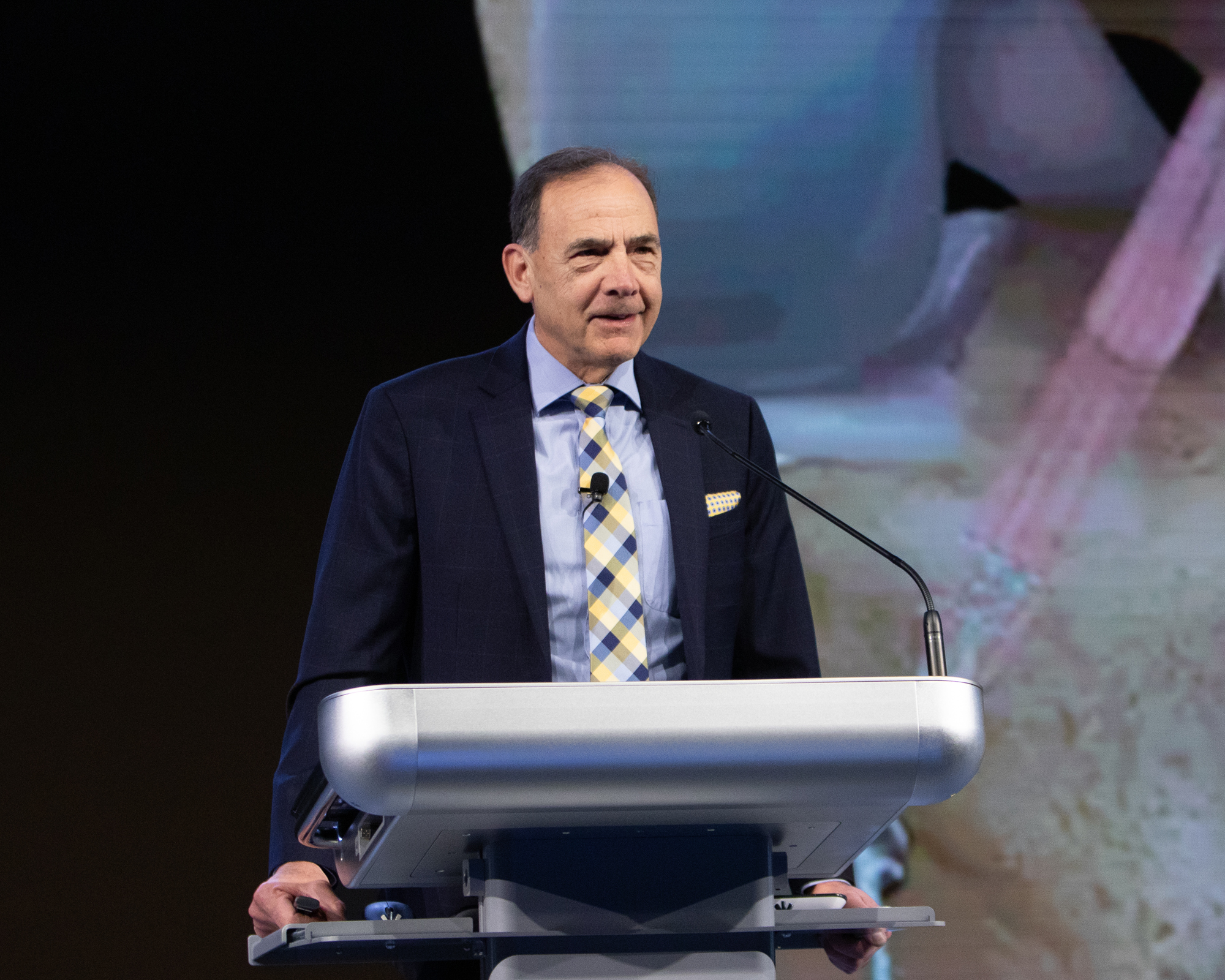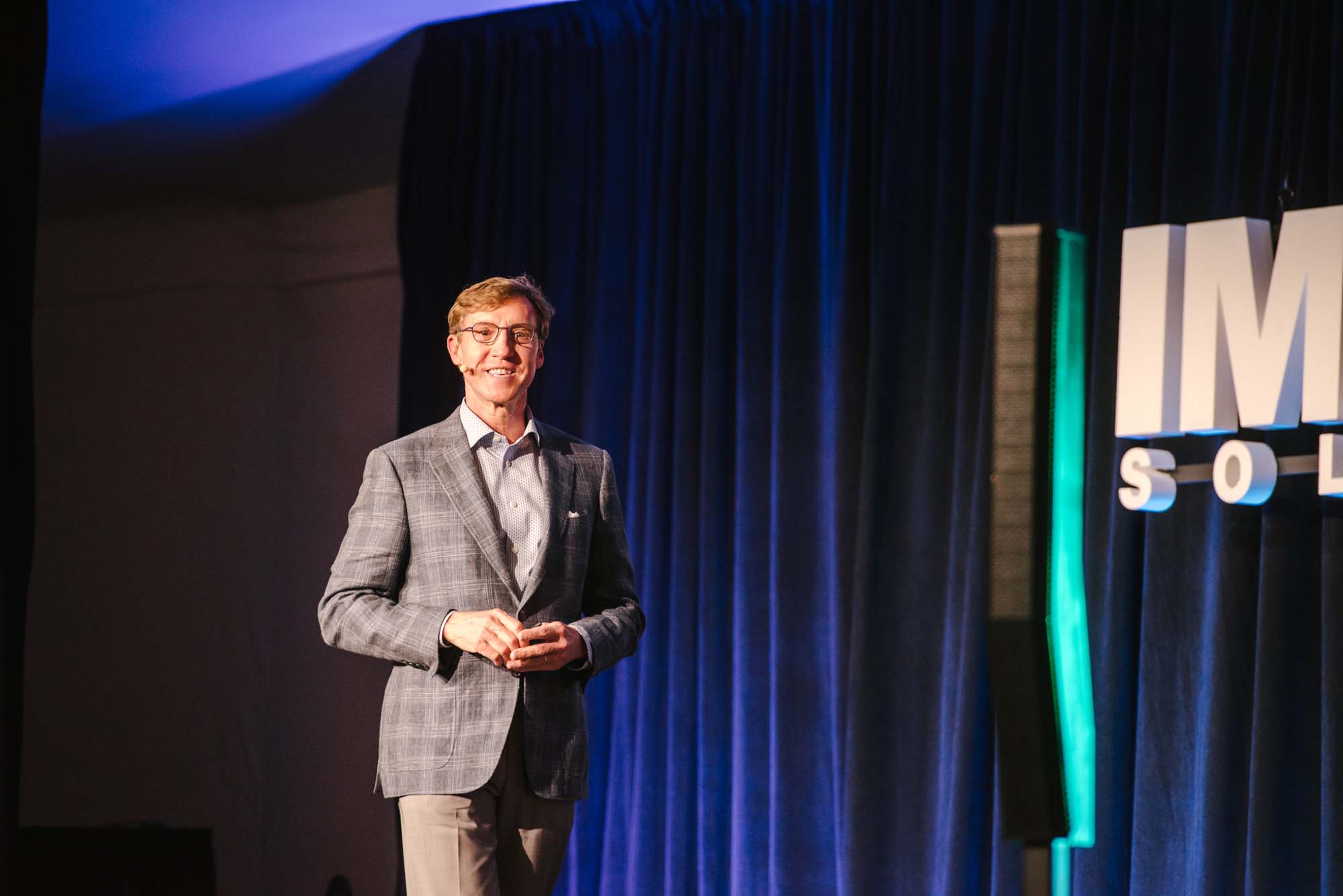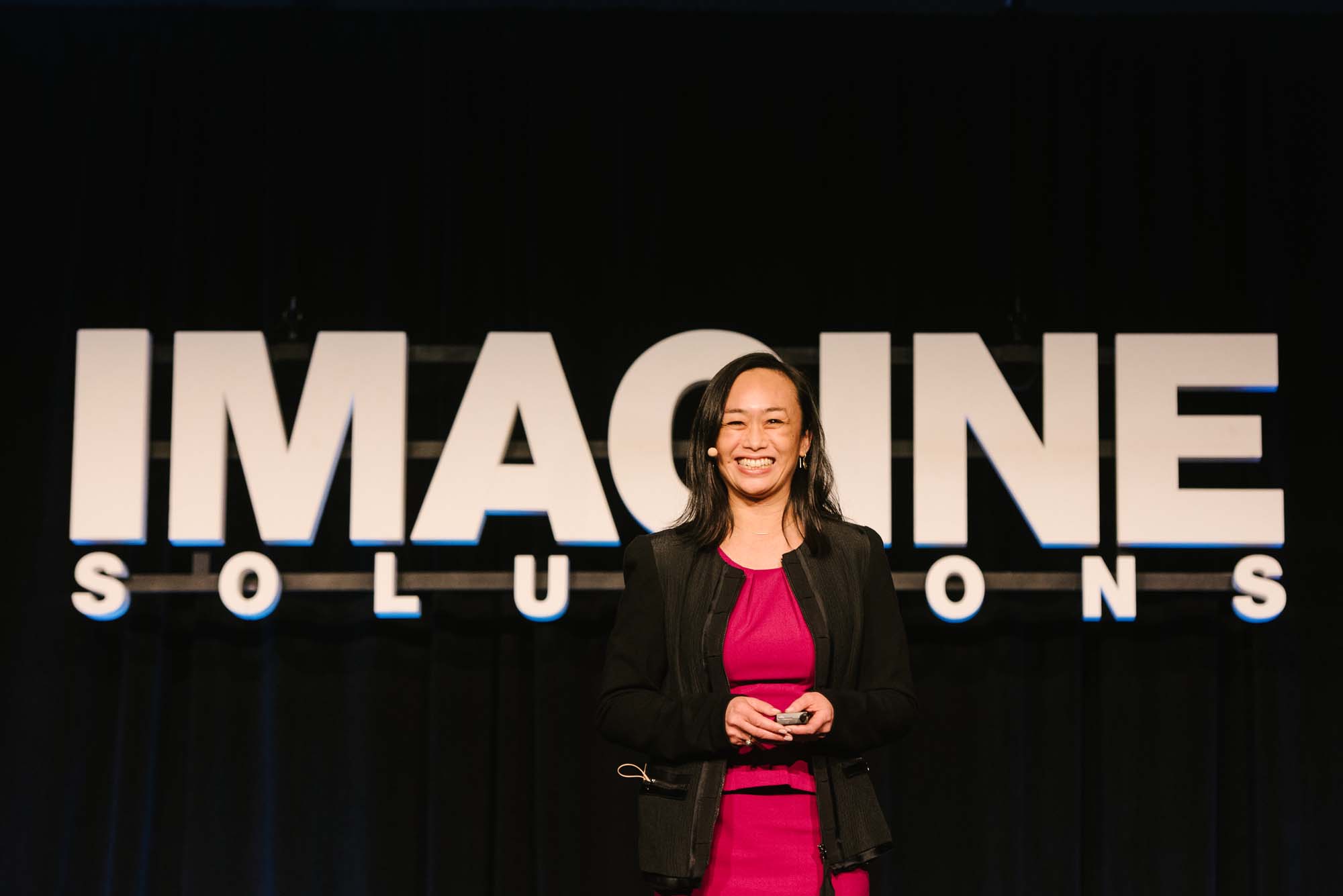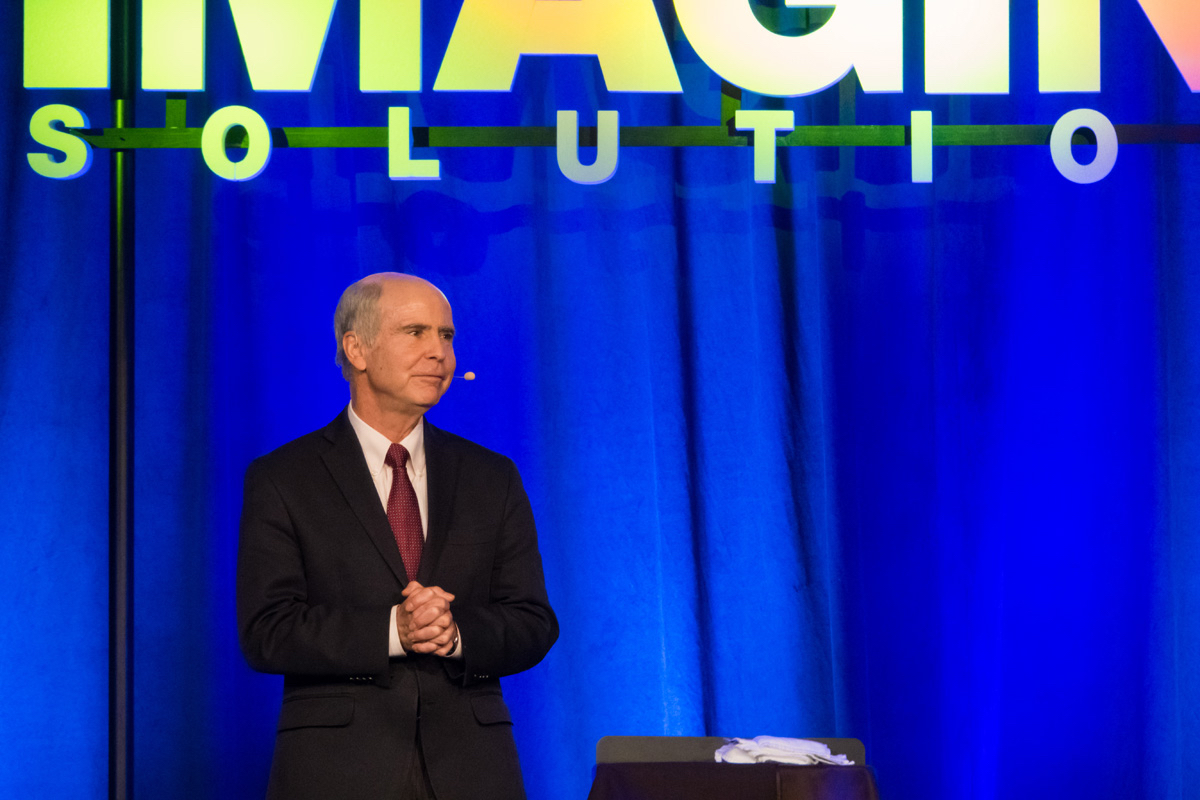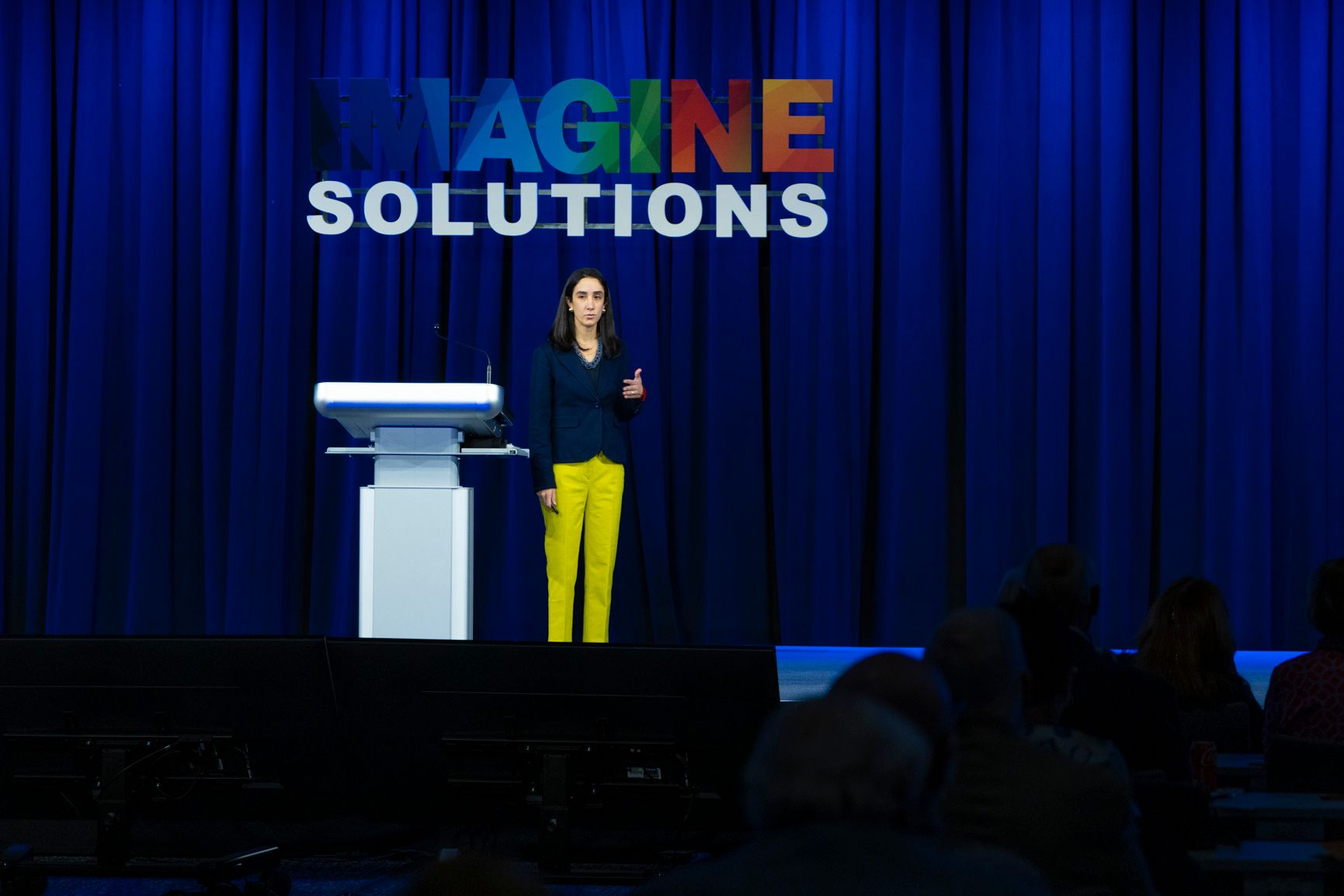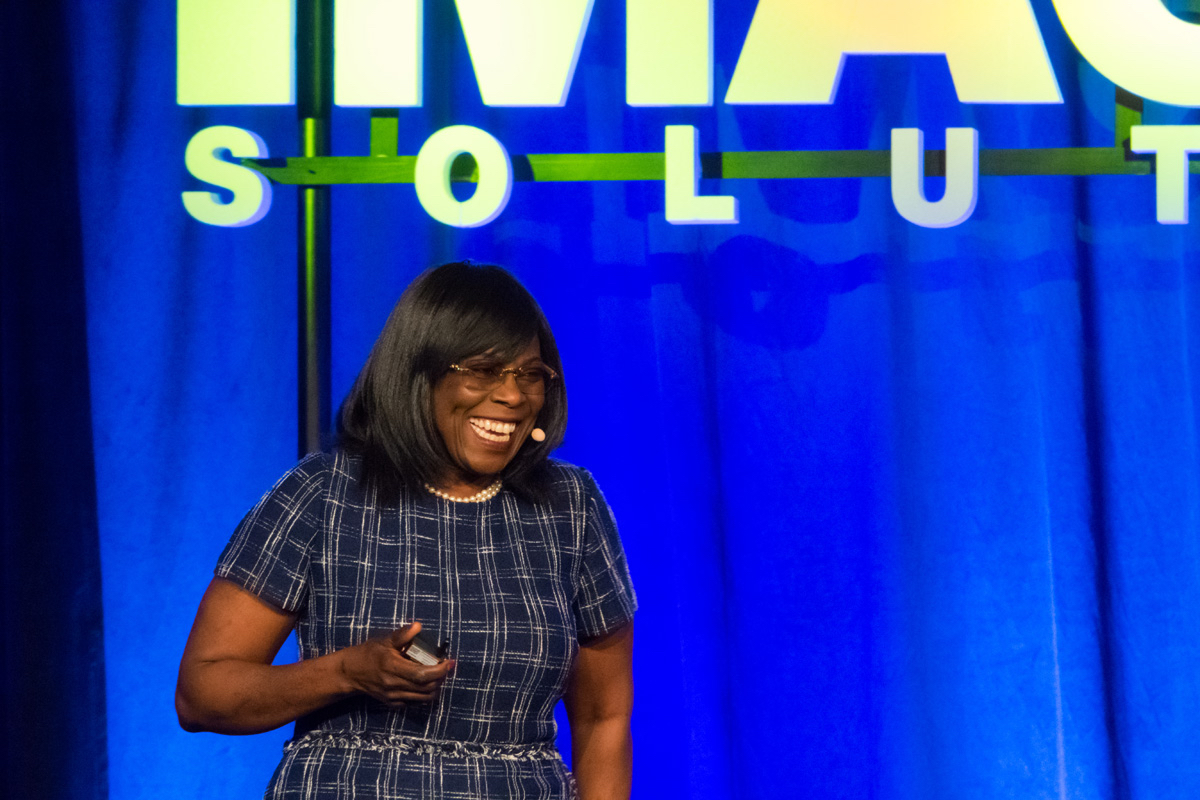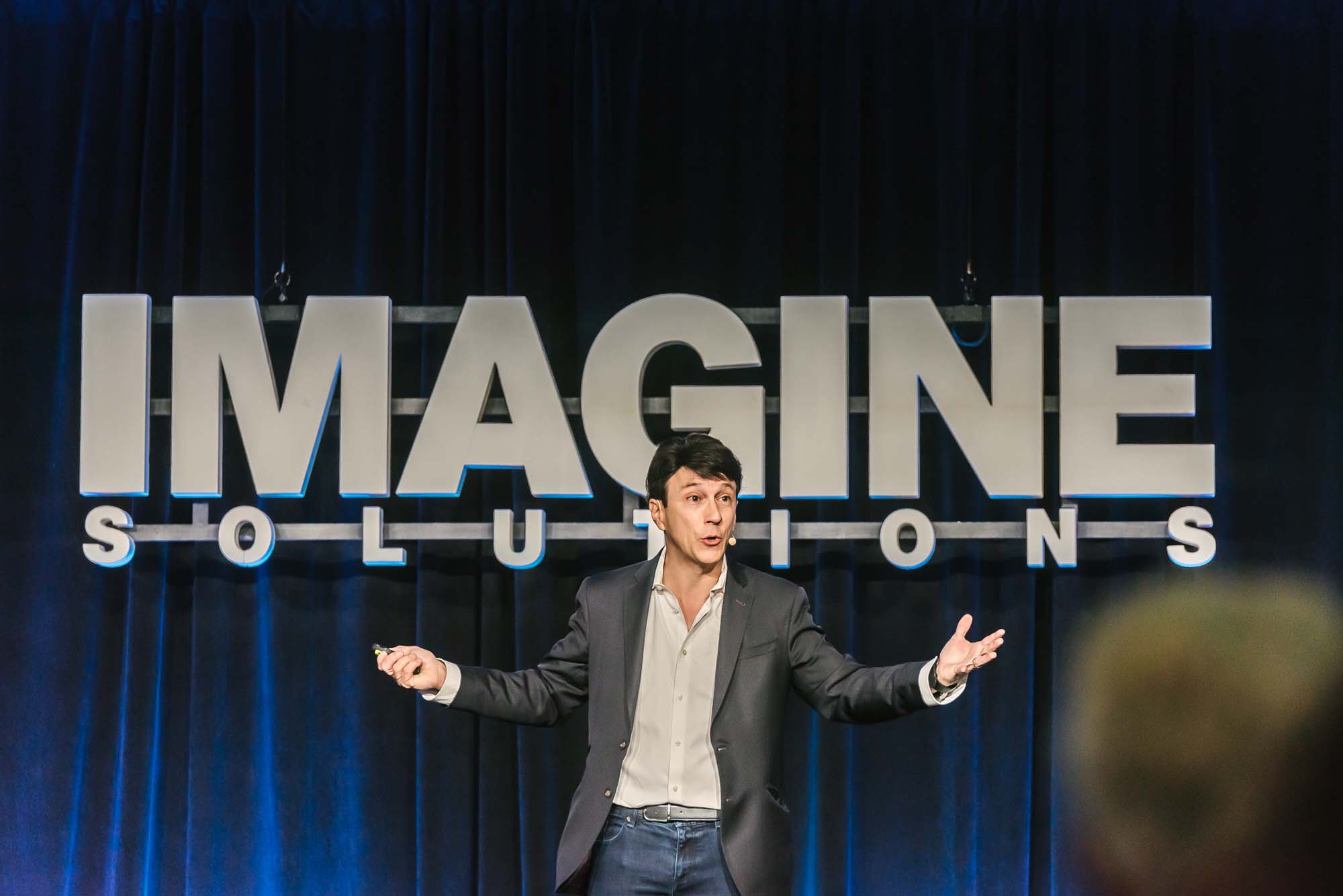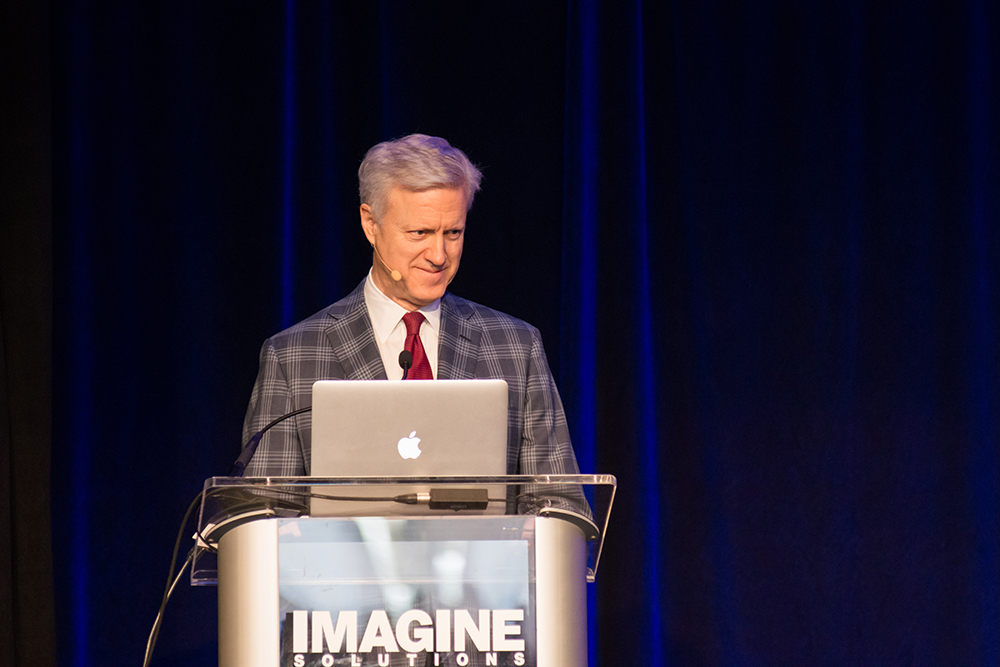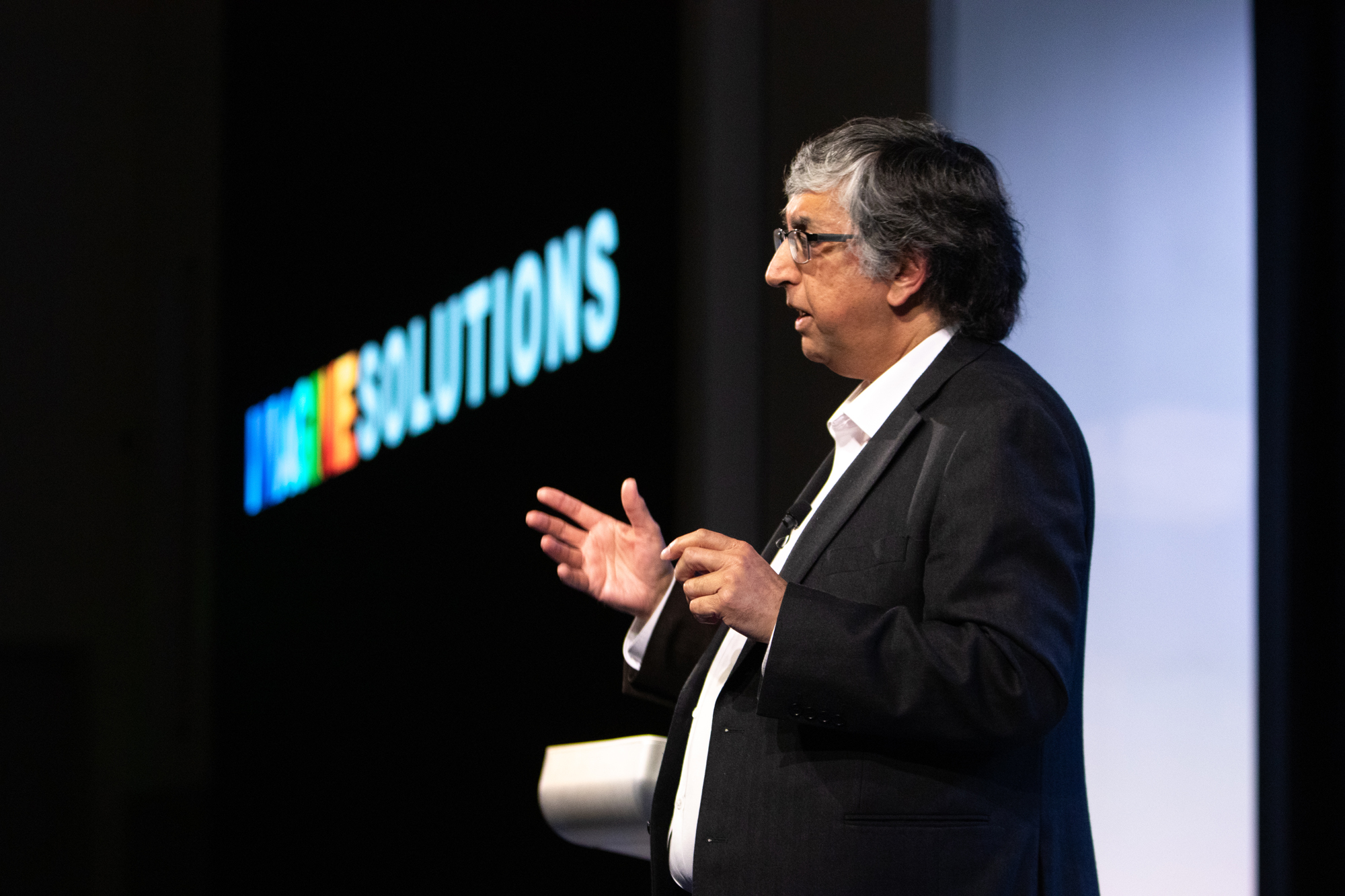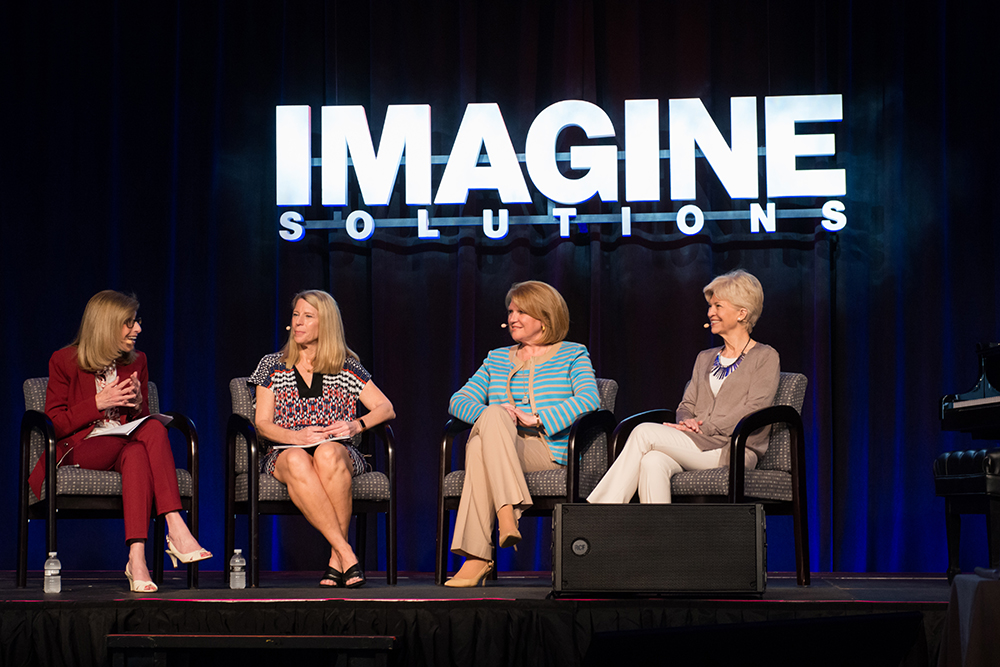Microbiome Ecology and Your Health
An innovator with more than 30 patents to his name, George Prendergast is the President and CEO of the Lankenau Institute for Medical Research, prioritizing a holistic, inventive, research-based perspective. His talk delves into the microbiome, in the context of cancer and our health more broadly. Our understanding of the microbiome is evolving and actually quite recent. We are, in fact, a complex, diverse living ecology. The way we interact with our microbiome has changed hugely, based on things like diet, travel, and basic hygiene. Microbiome diversity seems to be correlated with better health. Maintaining the body’s internal and external balance may prove effective.
00.00
George printe gas is both an academic scientist as well as someone from industry the marriage of biotechnology and academics he's a scientist he's a provocateur he's an innovator he's got more than 30 patents he's the president and the CEO of the lacan our Institute for medical research in Philadelphia now what George is about to tell you about is really not out from left field this is actually becoming mainstream medicine and this really is the future and this is how we're going to both prevent some diseases and treat some other diseases George good afternoon everyone it's a real pleasure to be here it's my job to sum up a little bit of what you've heard
01.00
from a seat of a generalist when I went to the Lankans - ten years ago it was to do the biggest experiment of my life with the combined inventiveness and new knowledge in new ways and we've started 16 companies and we've have a number of academic labs that do clinical medicine we also have a population health group and in that holistic kind of mosh pit we've created there's an analogy to what I'll tell you about today which is about the microbiome the microbiome is the third layer of what you've heard today you've heard the first layer of you the genetics of you new mutations where tumor cells arise and what we do to combat them you've heard about immunotherapy the immune system that is the second wave that has the ability to control that in principle or tolerate it being defeated by the immune system I'd like to tell you about the third layer now the other you the microbiome as dr. Brawley has commented this is the world of microbes that live in and on you
02.01
cancer and the microbiome the microbiome is something that scientists are only beginning to understand we've known for many years that our bodies naturally are covered by and infused with many kinds of microorganisms but it's only until really recently that we've understood that you are not an autonomous organism you are filled with species as we begin to look at those species by sequencing the DNA that we can collect from skin samples or stool samples or their lung or the mouth or the underarms the feet the hands enormous ly diverse what lives on you is in ecology you are in ecology and the complexity of that third layer is as complex as the cells that live in you it's an amazing thing to think that we're even discovering new species this way and we could never culture we didn't even know we're there and not just bacteria or micro plasma or micro bacteria or a fungi or algae or yeasts
03.03
or parasites there are many many worlds within us that we're just now discovering through this ability of looking at the molecules that tag those organisms we didn't even know existed so there's you and there's other you and other you is really diverse trillions of microbes there are many other you cells as there are you cells in you so you can imagine that when you begin to think about that complexity and everything that's in us that world which we have only just begun to discover is going to affect you and that's where the promise of where I'm going to lead you today and tell you a little bit about microbiome and health the microbiome is infused into us at the very moment of birth when you're born you pass through the birth canal you are infused with a world of bacteria that represents your mother's experience and the experience of the environment into which you're born and immediately the
04.01
first instinct of the baby is to put things in its mouth initially mother's milk well you get milk sugar why would mammals use milk sugar our bodies don't run on that but babies seek milk sugar mammals evolved it milk sugar attracts lactobacillus milk loving bacteria so right from birth again milk loving bacteria are attracted in our evolution of our bodies nope loving bacteria are very good for our gut and if you take a probiotic chances are it has a lactobacillus trained in it so that world of microbiome is infused right from the beginning of your life it covers you and infuses you but it's also something that as not you is dynamic and it evolves very quickly in this last century we have enormous Lee evolved in other you do to hygiene sanitation antibiotics vaccines no one would go back to the old days when we were our other you was a heavy burden to carry and we're simpler
05.02
now and that we don't carry the same heavy burden quantitatively but qualitatively we may be very different and we're not completely sure about this but think of it for a moment our great-grandparents really didn't go anywhere and they ate the same stuff and their world was very simple but today we have international trade and travel everything you touch and you eat every part of the world you go to you're finding new species now that are going to infuse your own ecology and change it new materials this century 20 million new man-made cum chemicals and bio chemicals in the world we live in diet of course our diets are so diverse today all this has changed the makeup of the microbiome if you give up bread today in three days your gut bacteria will be completely different what's going on with you day to day literally day to day affects other you a fixed how you feel how you act it trains a healthy host so when you're infused with that bacteria from
06.00
the beginning of life it's affecting your metabolism your physiology and your immunity we now know that the immune system is trained by the influx of all those bacteria so the baby's instinct to crawl around put dirt in its mouth do all that sort of thing that is a process of training the body to where the body lives here's all the stuff around me the food I eat the things that I touch the air that I breathe it's all got microorganisms in it and your training the immune system to get used to your environment so health one of the things we've learned is health has to do with diversity of that community of bugs if you like that other you the more diverse the other you is that seems to go with good health that's really the only thing we're sure about right now for microbiome in us we know that if you're sick you're more likely to have another you that doesn't have quite as many species if you're healthy you're more diverse they're a blooming flower if you like I'm not a wilting flower one of the main areas of attention and I'm sure a
07.01
lot of you know about this is the gut microbiome the world of bacteria that live in our GI tract many of us take probiotics or prebiotics and what the striking thing we're learning about the gut is the gut is like an immune brain there's a lot of lymphocytes that live there there's a lot of neurons brain cells that live there there's a huge amount of communication that's happening in the gut that is training the body and constantly in communication with it and regulating it and the species that live in the gut and their metabolism and their physiology their world the other new world it's very much affecting what your world is doing so much so that if you take an animal or even now people and you move bacteria or you move samples between animals impact and people you can change very much how they feel and and work it's really amazing now some of this is you know a little bit hard to handle because literally what physicians do in many experiments and we've done this in the laboratory is move the gut bacteria from one person to
08.00
another a stool transplant or a fecal transplant it's a little unseemly but not only we're taking these samples and we're sequencing the DNA we're moving them around it makes the lab kind of a sneaky place to be literally but what we've learned is that we can influence other you simply by moving one ecology from the other so in ecology of a jungle we can move to the ecology of the claims of ecology of the plains we can move to the ecology of the of the wooded forests to the Northeast this kind of idea what we have learned so far though as we do that is you might think well there's certain species that are good for us in certain bugs and I mentioned lactobacillus as being one of those but that doesn't seem to be the case the more we look at people than won't we find out everybody's different we all have our own like ecology it's like the Ecology's of the world if you travel the world you go to different countries everything's a little bit different there may be some common plants but most things are a little bit different the most shocking thing we found so far
09.00
in the field of cancer research is your gut microbiome can determine whether or not you respond to immunotherapy so that third layer of other.you the layer of the microbiome can influence whether your immune system decides to tolerate your tumor or fight it if you take a patient that's responding well and you take some of the gut microbiome and you put it into a patient that is not responding to an immunotherapy you can turn them around and they begin to have a response it's amazing we would have never thought of this five years ago even that there would be the other you influence so powerful that were to determine what a cancer therapy would do to me this is still shocking the amazement that comes from just training the immune system as you heard from dr. Finn that you could influence your immune system to change its attitude not tolerate your tumor anymore but fight it and medicines that help do that don't help everyone but if we go into patients
10.01
that aren't being helped the therapy may help as long as we put in the right ecology so the vision of the future here really is we're going to learn a lot more about microbial physiology and metabolism and the term I want you to remember is immuno metabolism you think of the metabolic concerns of your body the medical about what concerns of you as being autonomous they're not that other you is constantly talking to you and acts so powerfully that it can change your body's attitude about the disease it may have now as I mentioned we really don't know a lot about microbiome yet we're finding new species because we're sequencing the DNA and we're finding thousands and thousands and things we don't even know what they are yet but we can see the molecules that are in those cells so we don't understand a great deal yet but we have found out about specific determinants of health diversity is typically good no matter what your ecology is more species is better we know that has a powerful
11.01
effect on training immunity and as dr. Finn mentioned these papers and science that just came out they put in place now the big idea for the field of cancer research not just the tumor cells not just what your immune system thinks what the microbiome is doing and what it thinks because it's training the immune system to determine how it feels about a tumor and this really comes back full circle in the history of cancer research immunology was the original observation at the Lankenau Institute where I'm honored to be president we were the one of the first cancer centers in the country to be dedicated to cancer research and our roots go back to what had been previous to World War one called the German Hospital Philadelphia Lankenau being a German name and so we knew where D Vercoe and we knew his original observations about tumors looking like inflamed immunological e aberrant tissues and we knew about dr. Coley who was giving infections as dr. Brawley mentioned as a way to change the response of a body to clear metastatic cancer well now we're in a
12.02
position to say well oh that's the microbiome world actually dr. Coley and dr. Virgo back in Germany they already were thinking about that but they didn't have the molecules didn't have the cells he didn't have a way to put it all together but in some ways we're back to the future in closing about metabolism I want to show you as I brought one of these with me here's a kind of immunotherapy which came from the Lankenau Institute with our colleagues at Georgia the NCI and a company we started that was bought by new linked genetics now a public company immunotherapy in a pill there's not too many immunotherapies in a pill most of them are in fusional or given by an injection and this particular immunotherapy called an IDO inhibitor this version in Doc's Ahmad this is a really interesting molecule and we haven't been able to figure it out for years and now recently we're thinking we understand it a little bit better we think this drug is actually working through the microbiome this drug is a very simple derivative of D tryptophan
13.02
so if you remember some of your basic biology you might remember that the amino acids of nature and the sugars of nature come in two-handed forms our bodies and plants they make and we use only one for one-handed form the other handed form we don't use in Docs to mod is actually the other handed form of tryptophan with a slight variation bacteria use this other handed form and now we think that the way these immunotherapies are working the immune but embolic effect that they're having in the body on tryptophan it's not mediated through the body's interested in tryptophan the rarest and most precious amino acid but it's the bacterial world it's the microbiome world and somehow we're adding a metabolic agent used by that world which is changing its attitude to affect immune system and then the immune system can change its attitude about the tumor what's so fascinating about in Docs Ahmad is that we find that same drug
14.00
will also mitigate autoimmune effects so we're changing the attitude about the body not only for cancer which is not enough immune reaction if you like but autoimmunity maybe too much autoimmune too much immune response so this new world of thinking about how we treat the microbiome might be sort of an Eastern idea of getting new balance putting the body's microbiome in a place where the immune system gets healthier not only in ways to fight cancer but to fight other diseases and in closing I want to leave you with two ideas about where this new realm of microbiome takes us one is in thinking about using immunotherapies to correct the defects of the body I mentioned about autoimmunity these drugs can also clear not only cancer gunk if you like but in animals at least alzheimer's gunk atlas colorada gunk diabetic gunk that the immune system can be righted to get involved to correct disease states not necessarily cure but
15.01
to make it subclinical so that you can live healthily you can live a healthy lifespan you can live a longer life saying put these diseases at bay and the second either you want to leave you with is the regenerative capability of the body cancers and many diseases create a regenerative capability that's rogue cancer tissues take over the body but the stem cells that are there might be reprogrammed one of the most interesting features of the inflammatory immune world being influenced by the microbiome is that we might be able to take advantage of a disease such as cancer or autoimmune disease and take some of the capabilities that the body has acquired in this case for rogue or ill purposes and reprogram it and move it into a different zone so that we can take for example maybe the stem cells that tumor that you had created was created and now use those stem cells and reprogram them in a different direction so in thinking about what the microbiome might be able to do it's still early
16.01
days full of very radical ideas like this but it does present and want to leave you with the promise of the third layer the other you the world of medicine as we're going to see it not only how it influences our susceptibility to cancer and our ability to respond to modern cancer treatments but also to move other zones a disease to find long health spam thanks for your attention [Applause]

